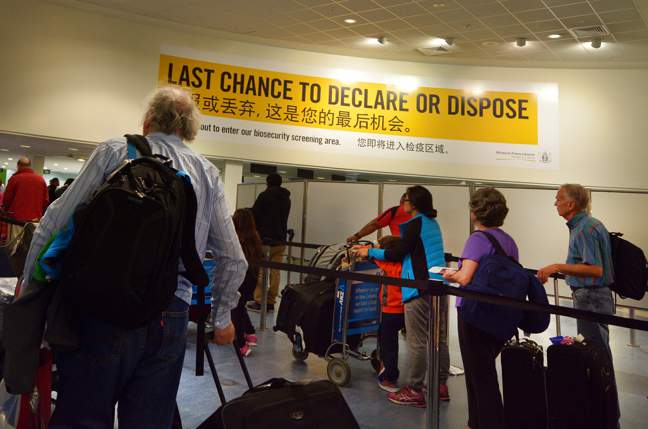
Not only is Australia home to a striking array of wildlife, it’s also free from many of the pests and diseases that plague the rest of the world. This is a big drawing point for visitors and one reason why law enforcers take quarantine very seriously.
It’s no secret that Australia has some of the strictest biosecurity laws in the world, designed to protect a delicate ecosystem that sustains many vulnerable and endangered species.
This can make moving to Australia a bit of a pain, if you’re not familiar with the requirements. But you don’t need to stress, if you know what you’re doing. This guide is a good starting point, to help you plan your journey with ease.
Did you see our previous posts about navigating strict quarantine laws to bring your pets into Australia?
Today we’ll look at what you need to know about transporting your possessions.
For those who are flying to Australia, it’s a good idea to pack any items that need to be checked into one box. This will make the job a lot quicker for Quarantine Officers, which means you’ll be on your way sooner. You should declare any food, plant matter or animal products in your suitcase, by ticking YES on the Incoming Passenger Card (a legal document).
It’s also important to check that every product and piece of equipment is free of grass, dust, mud, or other organic material. All wooden furniture must be checked for signs of insect infestation. If you’re unsure about the health of your furniture, it’s best to treat it or leave it behind.
It’s a good idea to use new packing boxes, when possible, to prevent contamination.
Keep in mind, you won’t be penalised if you declare goods that aren’t allowed into Australia, but you may be penalised if you break the rules by failing to declare.
For those shipping their goods in freight containers, here’s a basic list of the most common items that require inspection. This includes:
- Nuts and seeds
- Rice
- Herbs and spices
- Mining equipment
- Household and personal effects
- Matting - straw and seagrass
- Foodstuffs, coffee beans
- Agricultural machinery
- Timber
If there’s a particular item that you want to bring into Australia, but you’re not sure of its suitability, it’s a good idea to contact Australian Customs and Border protection.
Alternatively, you can call Chess Moving and we can figure it out and help you plan every stage of your trip.